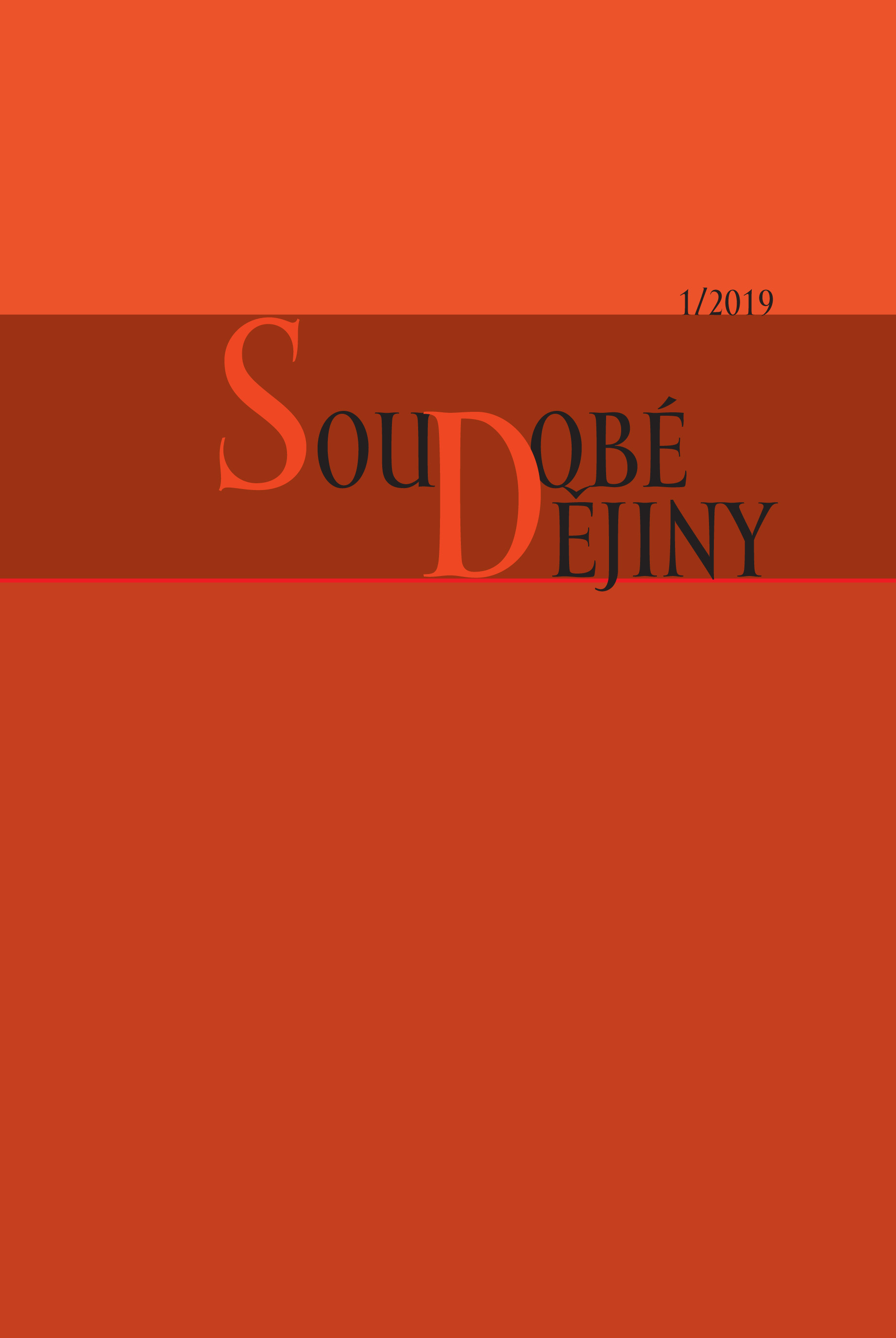Civilizační dimenze revolučních procesů v díle Jaroslava Krejčího
The civilization dimension of revolutionary processes in the work of Jaroslav Krejčí
Author(s): Karel ČernýSubject(s): History, Anthropology, Cultural history, Comparative history, History of ideas, Social Theory
Published by: AV ČR - Akademie věd České republiky - Ústav pro soudobé dějiny
Keywords: Jaroslav Krejčí;social changes;revolution processes;civilisations;
Summary/Abstract: In the opening part of his summarizing study, the author provides a biographic sketch of Jaroslav Krejčí (1916–2014), presenting him as an interdisciplinary researcher educated in law, economics, history, religious studies, and sociology, who was imprisoned for political reasons in Czechoslovakia during the 1950s, emigrated to the United Kingdom in 1968, and then became a Professor at the University of Lancaster, since the early 1990s also lecturing in his home country. Using fragmentary components, the author attempts to rebuild and critically present Jaroslav Krejčí’s comparative approach toward studies of long-term revolutionary transformations, which he had been building all his life, and set it in a broader sociological-historical context, with an access on the civilization dimension of these transformations. Although Krejčí also developed a unique typology of revolutionary processes or a theoretical model of revolution cycle phases, the study focuses on multiple civilization connections of revolutionary transformations. Krejčí notices, first and foremost, the civilization conditionality of the birth of revolutions, finding out that some civilizations do not wish revolutions, while a strong revolutionary tradition is typical for others. He also studies differences in the courses and outcomes of the so-called western and eastern revolutions, looking again for civilization conditionality of these differences. He argues that while the former tend toward plurality regimes, the latter head toward regimes characterized by a high concentration of power. In the end, Krejčí focuses on the topic of civilization transformations resulting from revolutionary processes that bring new, revolutionary combinations of new and old, and in particular domestic and foreign, resources. In the second part of the study, the author critically points at Jaroslav Krejčí’s unfinished civilizationist turn in his research of these revolutionary transformations. He also provides a description of how the topic of the civilization aspect of revolutionary processes is evolving in today’s academic mainstream, particularly in works of historical sociologists such as Shmuel N. Eisenstadt, Johann P. Arnason, and Samuel P. Huntington. The final discussion summarizes principal propositions of Krejčí and also examines their heuristic potential in their application to events of the so-called Arab Spring.
Journal: Soudobé Dějiny
- Issue Year: XXVI/2019
- Issue No: 1
- Page Range: 75-114
- Page Count: 40
- Language: Czech

